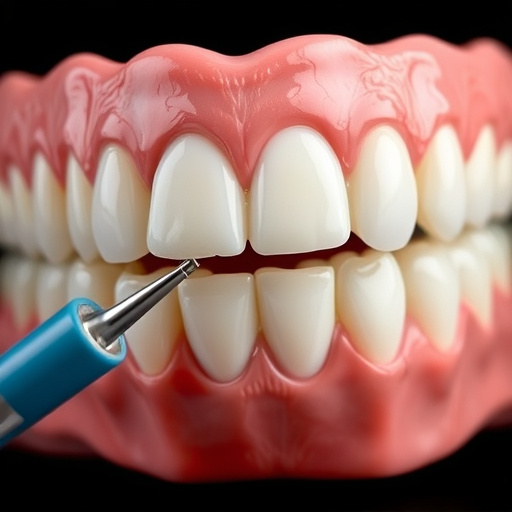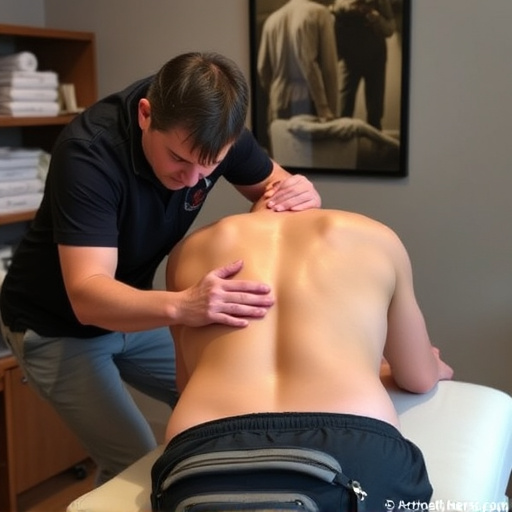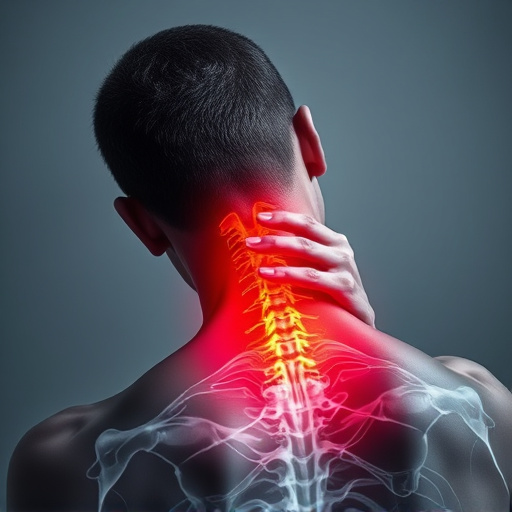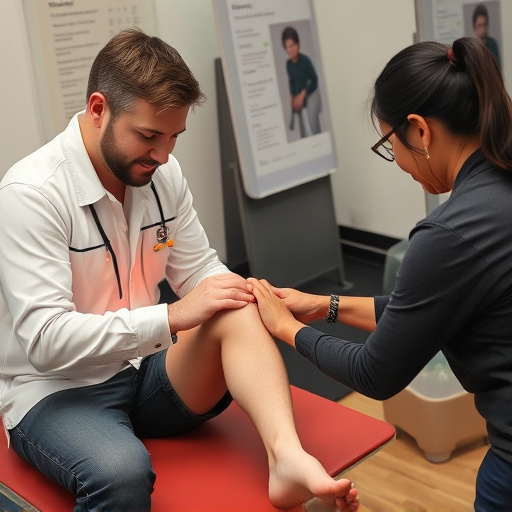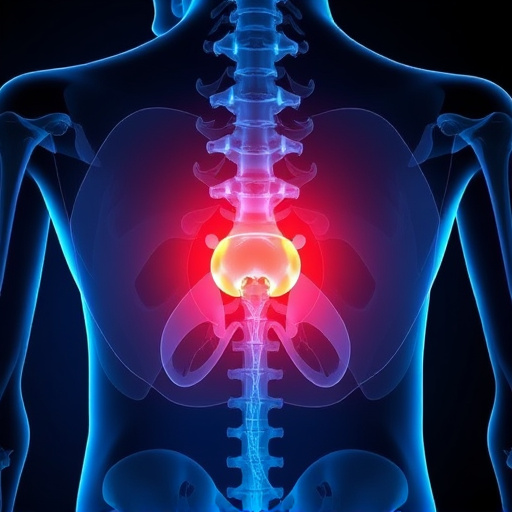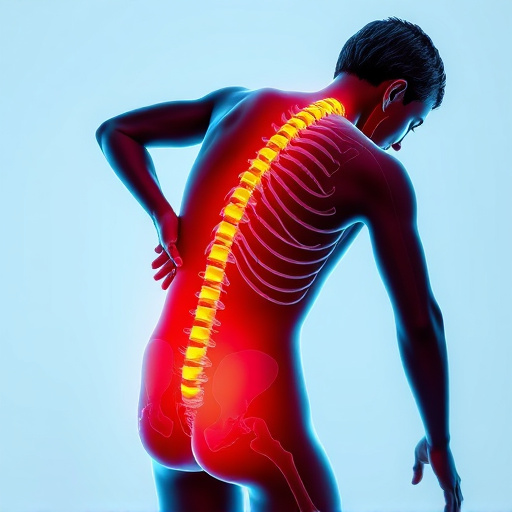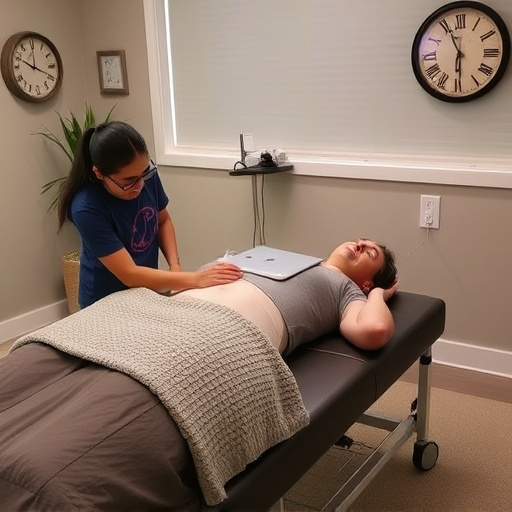Military injury treatment centers specialize in managing Traumatic Brain Injuries (TBI), limb amputations, and Post-Trauma Stress Disorder (PTSD) among service members. These facilities offer advanced neurosurgical care, physical rehabilitation for improved mobility, and psychotherapy for PTSD, focusing on CBT, support groups, and specialized therapies. Post-accident rehabilitation combines physical and mental recovery to aid veterans' overall well-being.
“In the realm of military care, specialized military injury treatment centers play a vital role in addressing complex wounds and traumas. This article explores three prevalent issues: Traumatic Brain Injuries (TBI), physical rehabilitation for limb amputations, and Post-Trauma Stress Disorder (PTSD). These conditions are common yet challenging, requiring tailored approaches. Through advanced treatments and comprehensive support, military injury treatment centers foster recovery, ensuring veterans receive the best possible care for their unique needs.”
- Traumatic Brain Injuries: Common and Complex
- Physical Rehabilitation for Limb Amputations
- Post-Trauma Stress Disorder: Treatment and Support
Traumatic Brain Injuries: Common and Complex

Traumatic Brain Injuries (TBI), often referred to as “mild” or “moderate” concussions, are among the most common and complex conditions encountered in military injury treatment centers. These injuries result from a blow or jolt to the head and can lead to a wide range of symptoms, affecting cognitive function, memory, balance, and even emotional well-being. Unlike physical wounds that heal over time, the effects of TBI may not be immediately apparent, making them particularly challenging to diagnose and treat.
Military personnel, due to their high-risk environments, are at a heightened risk of sustaining TBIs from various sources such as explosions, vehicle accidents, or direct impact during combat. Prompt recognition and specialized care are crucial for managing these injuries effectively. Military injury treatment centers employ advanced techniques, including neurosurgical interventions and comprehensive rehabilitation programs, to address the complex needs of patients with TBI. Additionally, focusing on pain management and mobility improvement is integral to the long-term recovery process, ensuring soldiers return to full duty when possible.
Physical Rehabilitation for Limb Amputations

Physical rehabilitation plays a pivotal role in the recovery process for service members who have experienced limb amputations following military injuries. Specialized military injury treatment centers offer comprehensive care tailored to each individual’s unique needs, ensuring optimal functionality and independence post-amputation. These centers employ dedicated therapists and healthcare professionals who design personalized treatment plans focusing on strength training, mobility enhancement, and adaptive skills development.
The journey towards regaining mobility and adapting to a changed physical reality demands patience and perseverance. Through regular sessions targeting specific muscle groups and joint functions, patients learn to manage pain, prevent further complications, and adapt their daily routines. In addition to addressing headaches relief and neck pain treatment, which are common challenges for amputees, rehabilitation aims to foster confidence in using prosthetics and navigating various environments with enhanced mobility and dexterity.
Post-Trauma Stress Disorder: Treatment and Support
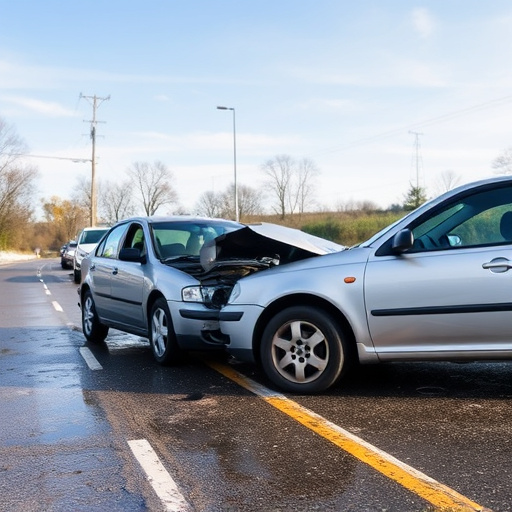
Post-Trauma Stress Disorder (PTSD) is a common injury addressed in military injury treatment centers, often accompanying physical wounds sustained during combat. The disorder manifests as intense emotional and psychological reactions to traumatic events, affecting a veteran’s ability to function in daily life. Treatment for PTSD typically involves psychotherapy, such as cognitive behavioral therapy (CBT), which helps individuals process and cope with their traumatic experiences. Support groups and peer counseling are also vital components of recovery, providing veterans with a sense of community and understanding.
In addition to CBT, military injury treatment centers offer specialized programs tailored to the unique needs of veterans. These may include exposure therapy, eye movement desensitization and reprocessing (EMDR), and mindfulness-based interventions. Through these therapeutic approaches, veterans learn to manage symptoms like flashbacks, nightmares, and heightened anxiety. Post-accident rehabilitation plays a crucial role in PTSD treatment, focusing on physical and mental recovery after traumatic events, alongside joint pain relief strategies for any associated injuries.
Military injury treatment centers play a vital role in addressing diverse common injuries faced by service members. From traumatic brain injuries, which require specialized care due to their complex nature, to physical rehabilitation for limb amputations and support for Post-Trauma Stress Disorder (PTSD), these facilities offer comprehensive solutions. By focusing on each patient’s unique needs, military injury treatment centers foster healing and help veterans reintegrate into civilian life with enhanced resilience and improved quality of life.


